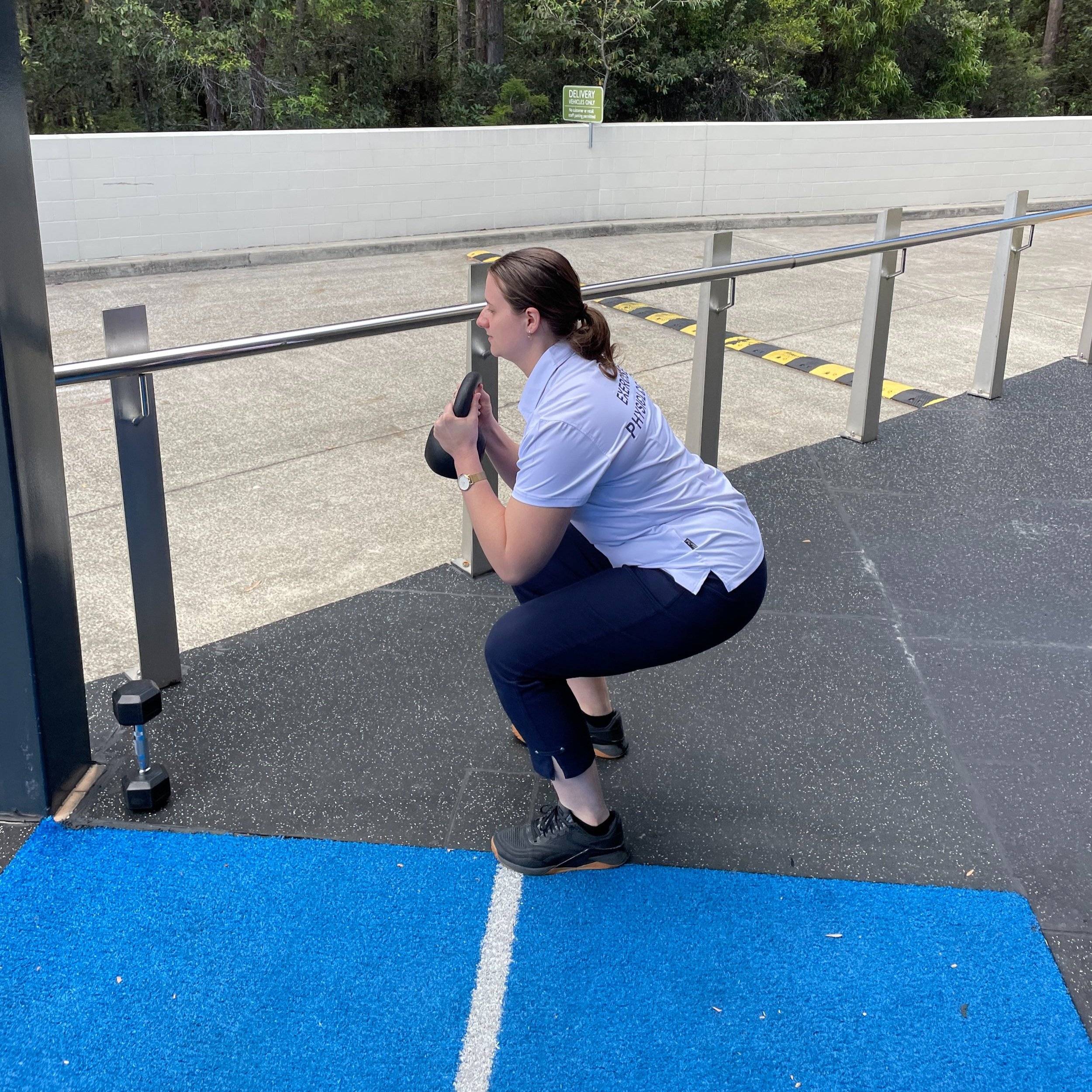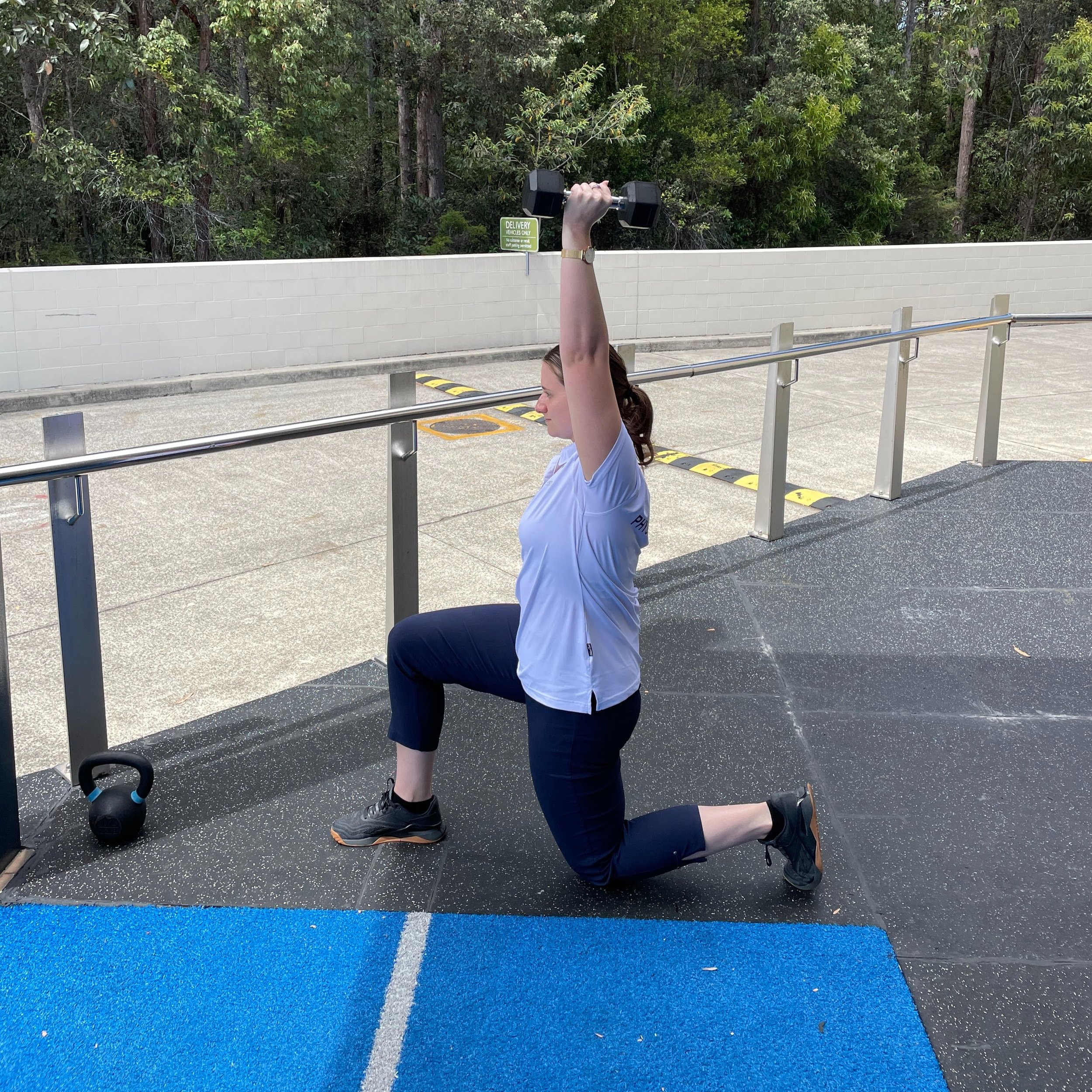Stronger Bones for Osteoporosis Management
Welcome to Stronger Bones – your ultimate solution to managing osteoporosis and reclaiming control over your bone health. Are you tired of living with constant worry and anxiety about fractures? We understand the challenges you face and are here to offer personalised support tailored to your needs. Say goodbye to limitations and hello to a future filled with strength and vitality.
Living with osteoporosis can feel like an uphill battle. The fear of fractures and injuries can weigh heavily on your mind, affecting your daily life and overall well-being. It's frustrating feeling restricted and anxious about the future implications of your condition. But you don't have to face this journey alone.
Our Stronger Bones Program is designed to strengthen your bones and reduce the risk of fractures. Through expert exercise physiology and dietetic services, we offer practical solutions to improve your bone health and empower you to take control of your future. With personalised strategies and support, you can embark on a journey to better bone health with confidence.
Imagine the relief of living without constant fear and anxiety about your bone health. With Stronger Bones, you can regain confidence and peace of mind, knowing you're actively taking steps to protect yourself. Experience the freedom of living life without the constraints of osteoporosis, and embrace a future filled with vitality and independence.
Ready to take the first step towards stronger bones and a brighter future? Contact us today to learn more about our Stronger Bones Program and start your journey to better bone health. Don't let osteoporosis hold you back any longer – together, we can build a stronger, healthier you. Click below to schedule your consultation now.
What is Osteoporosis?
Osteoporosis is a disease that causes bones to lose density and strength over time. Having strong bones throughout our life is important however becomes more significant in our old age. It is important to understand that bones are living tissue and are always remodelling throughout our lifetime. This remodelling process begins before we are born and continues until the day we die. In normal healthy bones, the remodelling process involves bone tissue being broken down followed by more bone being formed. In osteoporotic bone, more bone is broken down than is reformed. Over time, this results in the bones losing density. If someone has low bone density, they are at a higher risk of having a fracture.
Normal Bone
Osteoporotic Bone
Thinning of connective bone and bigger spaces in the bone structure makes it more fragile.
Risk Factors for Osteoporosis
There is a vast range of risk factors that can cause osteoporosis. These include:
Genetics or family history of osteoporosis
Asthma
Type 1 diabetes mellitus
Hypo/hyperthyroidism
Hypo/hyperparathyroidism
Chemotherapy
Long-term use of corticosteroids
Early menopause
Eating disorders and malabsorption
What Can We Do to Prevent or Manage Osteoporosis?
Our bones are living tissue and are always remodelling. Osteoporosis is a reversible condition and research has found that some lifestyle factors can help build bone. These lifestyle factors include:
Resistance and balance exercises,
Nutrient-dense diet,
Vitamin D.
The Role of Exercise in Osteoporosis Prevention and Management
Physical activity is a key factor in the prevention and management of osteoporosis. Regular weight-bearing exercises such as walking and jogging have been found to not be enough to promote bone remodelling. Activities such as heavy resistance training and dancing are proven to help stimulate bone remodelling and maintain bone density whilst also improving balance ability. Here's how exercise benefits people with or at risk of osteoporosis:
Increase or maintain bone mineral density
Strengthening Bones: Weight-bearing exercises put stress on bones, which in turn prompts them to adapt and become denser and stronger over time.
Improved Balance and Coordination (Falls Prevention): Osteoporosis-related fractures are often caused by falls. The right exercises enhance balance and coordination, reducing the risk of accidents.
Maintaining Muscle Mass: Strong muscles provide vital support to the skeletal system. Resistance training helps preserve and increase muscle mass, thereby supporting bone health.
Pain Management: Exercise can alleviate the pain associated with osteoporosis by increasing flexibility and promoting better posture.
Enhanced Overall Health: Physical activity contributes to overall well-being by lowering the risk of other chronic conditions, such as heart disease and obesity.
The Importance of a Nutrient-Dense Diet for Osteoporosis Prevention and Management
A balanced, nutrient-dense diet plays a pivotal role in osteoporosis prevention and management. Here are some dietary considerations:
Adequate Calcium Intake: Calcium is a primary building block of bone tissue. Dairy products, leafy greens, tofu, and fortified foods are excellent sources of calcium.
Vitamin D: Vitamin D is essential for calcium absorption. Exposure to sunlight and dietary sources like fatty fish, fortified cereals, and supplements can help maintain adequate vitamin D levels.
Protein: Protein is necessary for collagen formation, which provides the framework for bone structure. Lean meats, beans, and dairy products are good protein sources.
Phosphorus: Phosphorus, found in foods like poultry, dairy, and whole grains, is another mineral crucial for bone health.
Magnesium: Magnesium supports bone structure and is present in foods like nuts, seeds, and whole grains.
Fruits and Vegetables: A diet rich in fruits and vegetables provides antioxidants and other essential nutrients that support overall health, indirectly benefiting bone health.
The Role of Vitamin D for Osteoporosis
Vitamin D is often called the "sunshine vitamin" because our skin can produce it when exposed to sunlight. This vitamin is vital for calcium absorption, making it a crucial player in bone health. However, many people have insufficient levels of vitamin D due to limited sun exposure or dietary choices. Supplements and the dietary sources mentioned above help ensure an adequate intake of this essential nutrient.
Need Help?
Our Exercise Physiologists can show you which exercises are beneficial, and how to perform them correctly.
Our Dietitians can work with you to figure out how to include the above nutrients into your daily diet.
To start making a change to your lifestyle today, call us on 1300 AH TEAM (1300 24 8326).





